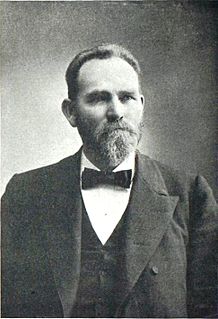A Quote by Eric G. Wilson
But the morbidity of sorrow-not cultivated sorrow, but that which comes inevitably-is often a productive sluggishness, a time when the soul slows down, too weary to go on, and takes stock of where it's been and where it's going. During these gloomy pauses, we often discover parts of ourselves we never knew we possessed, talents that, properly activated, enrich our lives.
Related Quotes
endurance of inescapable sorrow is something which has to be learned alone. And only to endure is not enough. Endurance can be a harsh and bitter root in one's life, bearing poisonous and gloomy fruit, destroying other lives. Endurance is only the beginning. There must be acceptance and the knowledge that sorrow fully accepted brings its own gifts. For there is an alchemy in sorrow. It can be transmuted into wisdom, which, if it does not bring joy, can yet bring happiness.
Sorrow is God's plowshare that turns up and subsoils the depths of the soul, that it may yield richer harvests. If we had never fallen, or were in a glorified state, then the strong torrents of Divine joy would be the normal force to open up all our souls' capacities; but in a fallen world, sorrow, with despair taken out of it, is the chosen power to reveal ourselves to ourselves. Hence it is sorrow that makes us think deeply, long, and soberly.
ought we not, from time to time, open ourselves up to cosmic sadness? ... Give your sorrow all the space and shelter in yourself that is its due, for if everyone bears his grief honestly and courageously, the sorrow that now fills the world will abate. But if you do not clear a decent shelter for your sorrow, and instead reserve most of the space inside you for hatred and thoughts of revenge-from which new sorrows will be born for others-then sorrow will never cease in this world and will multiply.
Sorrow, terror, anguish, despair itself are often the chosen expressions of an approximation to the highest good. Our sympathy in tragic fiction depends on this principle; tragedy delights by affording a shadow of the pleasure which exists in pain. This is the source also of the melancholy which is inseparable from the sweetest melody. The pleasure that is in sorrow is sweeter than the pleasure of pleasure itself.
To attain something desired is to discover how vain it is; and…though we live all our lives in expectation of better things, we often at the same time long regretfully for what is past. The present, on the other hand, is regarded as something quite temporary and serving only as the road to our goal. That is why most men discover when they look back on their life that they have the whole time been living ad interim, and are surprised to see that which they let go by so unregarded and unenjoyed was precisely their life, was precisely in expectation of which they lived.
If we choose the right, we will find happiness-in time. If we choose evil, there comes sorrow and regret-in time. Those effects are sure. Yet they are often delayed for a purpose. If the blessings were immediate, choosing the right would not build faith. And since sorrow is also sometimes greatly delayed, it takes faith to feel the need to seek forgiveness for sin early rather than after we feel its sorrowful and painful effects.
Can I see another's woe, And not be in sorrow too? Can I see another's grief, And not seek for kind relief? Can I see a falling tear, And not feel my sorrow's share? Can a father see his child Weep, nor be with sorrow filled? Can a mother sit and hear An infant groan, an infant fear? No, no! never can it be! Never, never can it be!
Not thine the sorrow, but ours, sainted soul! Thou hast indeed entered into the promised land, while we are yet on the march. To us remain the rocking of the deep, the storm upon the land, days of duty and nights of watching; but thou are sphered high above all darkness and fear, beyond all sorrow and weariness. Rest, oh, weary heart!
We mourn; we sorrow for our loved ones that go - our wives, our husbands, our children, our parents; we sorrow for them; and it is well and proper that we should moum for them and shed tears for the loss, for it is our loss; but it is their gain, for it is in the march of progress, advancement and development. It will be all right when our time comes, when we have finished our work and accomplished what the Lord required of us.



































